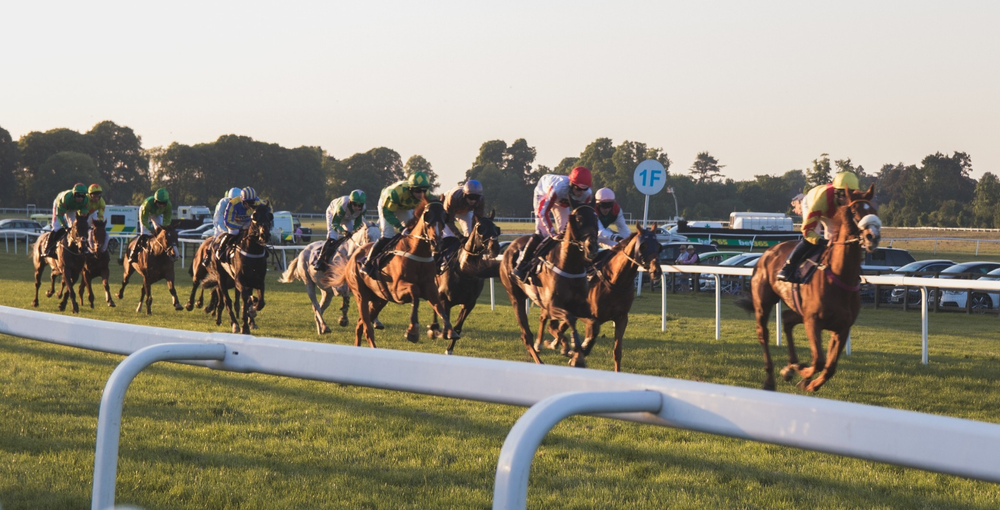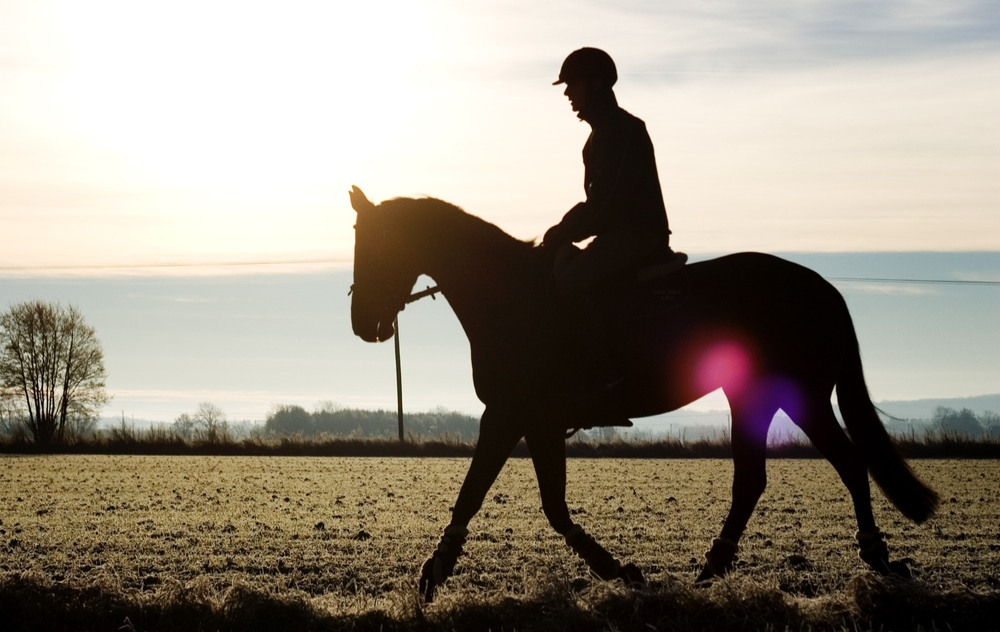Nestled between the cacophony of the I-80 freeway and the calm of the San Francisco Bay, lies a green oasis where elite athletes, both human and horse, race for prizes. At Golden Gate Fields, pageantry, personality, and pure speed are on display, as part of a tradition that’s captivated the attention of people worldwide, for many centuries.

The majestic animals’ performance depends on their health, and nothing but the best will do. The jockeys perform heroically, but it’s a dangerous sport, and the track’s medical response capacity is top-notch, as required by their NTRA accreditation.
It turns out there are worse things than being thrown from a horse: in late October 2020, the novel coronavirus came to the track, its dormitories, and stables. Fortunately, the team’s response allowed many to recover from the illness and return to work. So, what was it like behind the scenes?
Life on the Racetrack
The racetrack can be a very busy place. Around 500 employees, most of whom live in nearby dormitories, congregate in the cafe, the laundry facilities, and the restrooms. And it’s not just living together that brings the employees into close proximity: when taking care of the horses, “there’s no way to be six feet away.”
Many of the best horse workers come to Golden Gate Fields (GGF) from Mexico, Guatemala, and California’s Central Valley. Immigrants have also been one of the most vulnerable populations during the pandemic.
The Outbreak
At the beginning of the COVID-19 pandemic, Alameda County suspended racing at GGF because “it was impossible to maintain proper social distancing.”

After six weeks, they reopened, this time with safety guidelines on hand-washing, social distancing, and mask-wearing. Compliance was monitored and resulted in eight fines for “failure to properly wear a face mask in the stable area.” Bilingual signage could be found all around the racetrack, and for a while, it seemed these precautions were helping protect workers.
The first cases did not show any symptoms. In late October, workers from one barn, in particular, started testing positive and were quarantined from the rest of the workers. But, soon enough, cases were reported from different barns. Clusters appeared throughout the racetrack.
Most people appeared to have no symptoms, allowing for the virus to spread virtually undetected. After 24 positive cases, all racing was suspended, and everyone at GGF had to be tested for COVID-19.
One by one, tests came back positive for almost 200 people. All workers who tested positive quarantined in hotels. According to some employees, the racetrack became a ghost town. One barn was left completely empty.
For every person with a positive test, the racetrack’s on-staff physician, Dr. Seftel, recommended the drug fluvoxamine after reading a published article in the Journal of the American Medical Association (JAMA).
Fluvoxamine is supported by the COVID-19 Early Treatment Fund, which was created by Steve Kirsch and backed by a physician-led team. Originally, fluvoxamine was designed for OCD, and has attracted attention during the pandemic by helping COVID-positive patients avoid hospitalization.
Of the positive GGF workers who chose to take the medication, all recovered and no one was hospitalized. They also reported no lingering symptoms of COVID-19. Of those who did not take fluvoxamine, six were hospitalized, and one long-time trainer passed away.

Racing was suspended while the outbreak occurred, but for some, the work continued. Those who tested negative faced longer hours and heavier workloads. The racetrack slowly returned to normal as workers recovered, and more stringent COVID-19 guidelines were in place.
The Racetrack Today
Live racing resumed in January, and although the track is closed to the public, fans can watch races online using the official GGF app. Employees at the racetrack are regularly tested, and fewer people are allowed to live in the dormitories.
Meanwhile, the pandemic has continued to persist in the United States. California suffered through a large holiday surge in January, and while vaccination efforts have helped, the state’s initial rollout has been slow compared to other states.
Today, Golden Gate Fields doubles as a drive-thru vaccination site for the city of Berkeley. The site is prioritizing those vulnerable to hospitalization. While the area is primarily accessible by vehicle, seniors and people with disabilities who reside in Berkeley can use Easy Does It, a ride service supported by the city, to get to and from their vaccination appointment.
